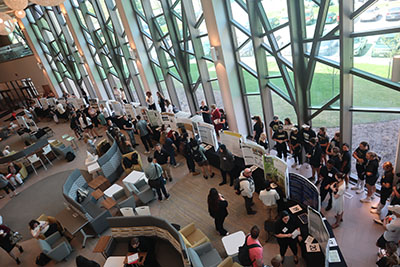Student Type
Graduate
College Affiliation
College of Education and Human Services
Department
Counseling
Submission Type
Poster
Abstract
Perinatal loss can be a traumatic event associated with high levels of distress and potentially PTSD (Berry, 2022). Strong social support is crucial in trauma recovery, though it is often counterproductive following perinatal loss (Meyer, 2016). Recent quantitative research done by Dr. Agata Freedle has shown that lack of adequate, culturally sensitive social support can contribute to elevated levels of PTSD. The specific experiences of perinatally bereaved women have not been captured in this data. Further exploration of this relationship to include the lived experiences of women is needed. The purpose of this study is to qualitatively explore how women experience the relationship between their distress and social support, as well as how women utilize formal and informal social supports to reduce their distress after perinatal loss. Findings will provide insight to both the population that is affected, and also to practitioners in the field who serve this underserved population.
Recommended Citation
Smith, Nicole; Matsche, Caitlin; Fattic, Denise; and Freedle, Agata, "The Relationship Between Social Support and Distress Following Perinatal Loss" (2023). 2023 Student Academic Showcase. 11.
https://digitalcommons.lindenwood.edu/src_2023/Posters/Session1/11
For poster
Included in
The Relationship Between Social Support and Distress Following Perinatal Loss
Perinatal loss can be a traumatic event associated with high levels of distress and potentially PTSD (Berry, 2022). Strong social support is crucial in trauma recovery, though it is often counterproductive following perinatal loss (Meyer, 2016). Recent quantitative research done by Dr. Agata Freedle has shown that lack of adequate, culturally sensitive social support can contribute to elevated levels of PTSD. The specific experiences of perinatally bereaved women have not been captured in this data. Further exploration of this relationship to include the lived experiences of women is needed. The purpose of this study is to qualitatively explore how women experience the relationship between their distress and social support, as well as how women utilize formal and informal social supports to reduce their distress after perinatal loss. Findings will provide insight to both the population that is affected, and also to practitioners in the field who serve this underserved population.


